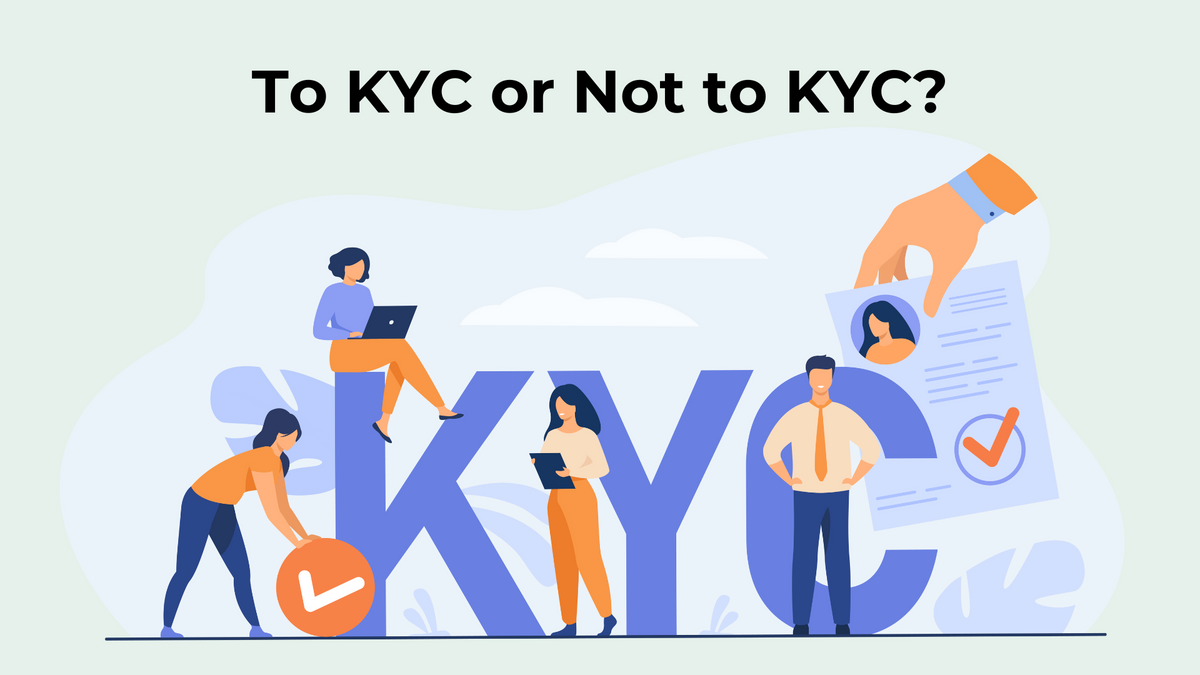KYC in Crypto Payment Processing: Navigating The Challenges and Opportunities
We look into the different aspects in KYC, such as its pros and cons especially for businesses looking into or already accepting crypto payments.

As cryptocurrency payments have transformed the trajectory of financial transactions, the debate around Know Your Customer (KYC) regulations has intensified. Is KYC a necessary safeguard, or does it hinder the progress of crypto adoption? Let's delve into the multifaceted implications of KYC in the world of crypto payment processing. Here's a short video discussing KYC in detail.
Table of Contents
The Good
- KYC's Purpose: KYC aims to prevent fraud and money laundering by verifying identities. In traditional finance, it protects the system from bad actors.
- Regulatory Compliance: For businesses, complying with KYC regulations helps avoid legal issues. It’s a safeguard against potential penalties.
- Trust Building: KYC can enhance trust between merchants and customers, showing that businesses are committed to security and compliance.
KYC plays a crucial role in the traditional banking system, ensuring that identities are verified to mitigate risks associated with fraud, money laundering, and terrorist financing. For governments and banks, it’s a necessary measure to protect the financial ecosystem, thus deemed essential for regulatory compliance.
The Bad
- Privacy Concerns: KYC requires merchants to collect sensitive personal data, which raises significant privacy issues, especially in an era of frequent data breaches.
- Centralized Data Risks: Sensitive data is often stored in centralized databases, making it vulnerable to hacking and misuse.
While KYC is intended to protect, it often becomes a hindrance in the crypto payment landscape. The necessity of handling sensitive personal information, such as IDs and addresses, puts privacy at risk. Centralized data storage can lead to potential breaches, making users' information a target for hackers.
The Ugly
- Exclusion of Users: KYC can exclude vast populations, particularly in underdeveloped financial systems where individuals lack the necessary documentation.
- Inconvenience for Users: The KYC process can deter users from engaging with crypto payment platforms due to the hassle of providing personal information.
The stark reality is that KYC can alienate large groups of potential users who may not have the required documents to comply. This is especially significant for merchants aiming to expand globally, as crypto should ideally enable seamless transactions across borders without unnecessary barriers. The essence of cryptocurrency lies in privacy and decentralization, and imposing KYC especially in crypto payment softwares can contradict these foundational principles.
Finding a Balance
The challenge lies in striking a balance between regulatory compliance and the core values of cryptocurrency. For some businesses, implementing KYC is unavoidable due to legal obligations. For others, embracing a no KYC policy can offer more freedom and less exposure to data risks.
Ultimately, businesses must assess their needs, the legal landscape, and customer preferences to determine the best approach for integrating KYC into their operations.
Frequently Asked Questions
What is KYC?
KYC stands for Know Your Customer, a regulatory process that requires businesses to verify the identities of their clients to prevent fraud and illegal activities.
Why is KYC important in crypto?
KYC helps ensure compliance with financial regulations, protects businesses from legal issues, and aims to prevent criminal activities within the financial system.
What are the risks associated with KYC?
Risks include data privacy concerns, potential data breaches, and the exclusion of individuals who may lack the necessary documentation to comply with KYC requirements.
Can businesses operate without KYC?
Yes, some businesses choose to operate without KYC to preserve user privacy and accessibility, but they must carefully navigate the legal implications in their jurisdiction. Businesses can also opt to use crypto payment softwares with a no KYC policy such as Blockonomics.

Comments ()